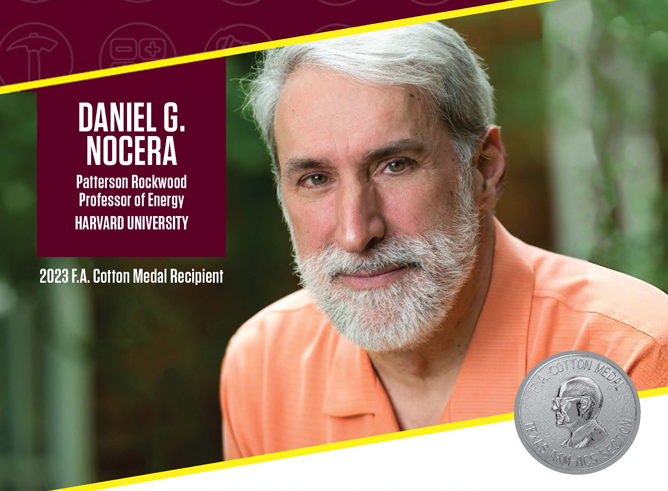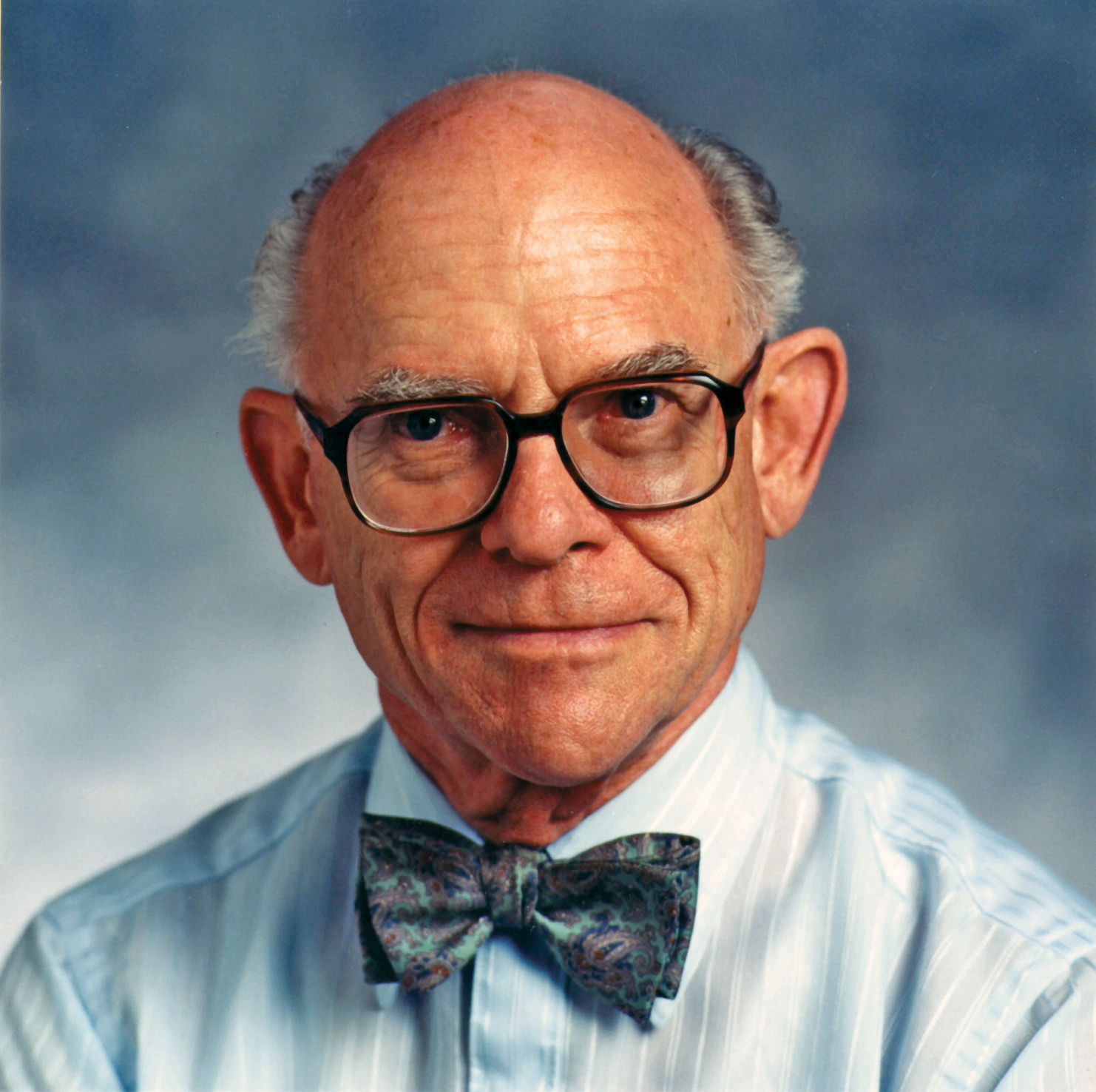
Daniel G. Nocera, Patterson Rockwood Professor of Energy at Harvard University, has been selected as the 2023 recipient of the F.A. Cotton Medal for Excellence in Chemical Research named for one of the most honored faculty members in Texas A&M University history.
The medal is jointly awarded each year by the Texas A&M Department of Chemistry and the Texas A&M Section of the American Chemical Society (ACS) in tribute to Dr. F. Albert Cotton, a Texas A&M distinguished professor of chemistry widely considered one of the world’s foremost inorganic chemists who passed away on February 20, 2007. He was the inaugural recipient of the medal when it was first awarded in 1995.
Nocera will be honored during an afternoon symposium set for Friday, March 24, within the Interdisciplinary Life Sciences Building Auditorium on the Texas A&M campus. In addition to Nocera’s 4:30 p.m. keynote presentation, the event will feature preceding talks by University of California, Berkeley, chemist Kwabena Bediako and Stanford University chemist Matt Kanan. The symposium will be followed by an invitation-only dinner, at which Nocera will be presented with the Cotton Medal.
Nocera has been on faculty at Harvard since 2013, where he holds appointments in both the Department of Chemistry and Chemical Biology and the Graduate School of Design. Prior to moving to Harvard in 2013, he was the Henry Dreyfus Professor of Energy and director of both the Solar Revolutions Project and the Solar Frontiers Center at the Massachusetts Institute of Technology (1997-2013). He began his career at Michigan State University (1984-1997) after earning his Ph.D. from the California Institute of Technology under the mentorship of 2018 Cotton Medal recipient Harry B. Gray in 1984.

Cotton came to Texas A&M as the Robert A. Welch Distinguished Professor of Chemistry in 1972 from MIT, where at age 31 in 1961, he had become the youngest MIT faculty member to attain the rank of full professor. His pioneering 35-year career at Texas A&M revolutionized several fields of chemistry, including inorganic chemistry, protein chemistry, structural chemistry and chemical bonding. Cotton was the originator of and leading authority in the field of compounds containing single and multiple bonds between metal atoms. His other principal contributions dealt with protein structure, spectroscopic studies of metal carbonyls, and the dynamic behavior of fluxional organometallic and metal carbonyl compounds.
As a world-leading researcher in renewable energy, Nocera’s own pioneering discoveries have originated new paradigms that have defined the field of solar energy conversion and storage. He created the field of proton coupled electron transfer (PCET) at a mechanistic level by making the first measurements that temporally resolved the movement of an electron coupled to a proton. With PCET as a guiding framework, Nocera invented the artificial leaf and the bionic leaf, accomplishing the solar fuels process of photosynthesis — the splitting of water to hydrogen and oxygen using light from neutral water — at atmospheric pressure and room temperature at efficiencies of greater than 10 percent. His bionic leaf uses the hydrogen from the artificial leaf and carbon dioxide from air to make biomass and liquid fuels, performing artificial photosynthesis that is 10 times more efficient than natural photosynthesis.
Extending this approach, Nocera has achieved a renewable and distributed synthesis of ammonia (and fertilizer) at ambient conditions by coupling solar-based water splitting to a nitrogen-fixing bioorganism powered by the hydrogen produced from water splitting. Thus, using only sunlight, air and water, he has created a distributed system powered by renewable energy to produce fuel and food. Using a similar process, he has produced a living biofertilizer, resulting in increased crop yields and early harvests while avoiding nitrogen runoff.
To date, Nocera has mentored 180 Ph.D. graduate and postdoctoral students, 79 of whom have assumed faculty positions, published more than 500 papers and presented in excess of 1,100 invited talks and 135 named lectureships. In addition, he has founded two companies, Sun Catalytix, a company committed to developing energy storage technologies for the widespread implementation of renewable energy, and Kula Bio, which is focused on the development of a living biofertilizer for renewable and distributed crop production and land restoration. In 2014, Lockheed Martin purchased the assets of Sun Catalytix and is now commercializing related technology under the venture Lockheed Martin GridStar™ Flow.
Nocera is a member of the American Philosophical Society, the American Academy of Arts and Sciences, the U.S. National Academy of Sciences and the Indian Academy of Sciences. His research contributions have been recognized with many awards, including the Leigh Ann Conn Prize for Renewable Energy, Eni Prize, IAPS Award, Burghausen Prize, and the United Nation’s Science and Technology Award as well as the American Chemical Society’s Inorganic Chemistry, Harrison Howe, Kosolapoff and Remsen Awards. He was named one of Time Magazine’s 100 Most Influential People in the World and was 11th on the New Statesman’s list on the same topic.
"The breadth and depth of Nocera’s science are truly astounding," said Texas A&M chemist David C. Powers. "In addition to his monumental contributions to energy science, he has made significant discoveries in chemical bonding, notably penning a seminal paper (with Cotton) on the chemistry of the two-electron bond. Nocera is a most deserving Cotton Medalist, and we are excited for the upcoming Award Symposium."
For more information about the event, contact Texas A&M Chemistry at (979) 845-9829 or via email at chemhead@chem.tamu.edu.
